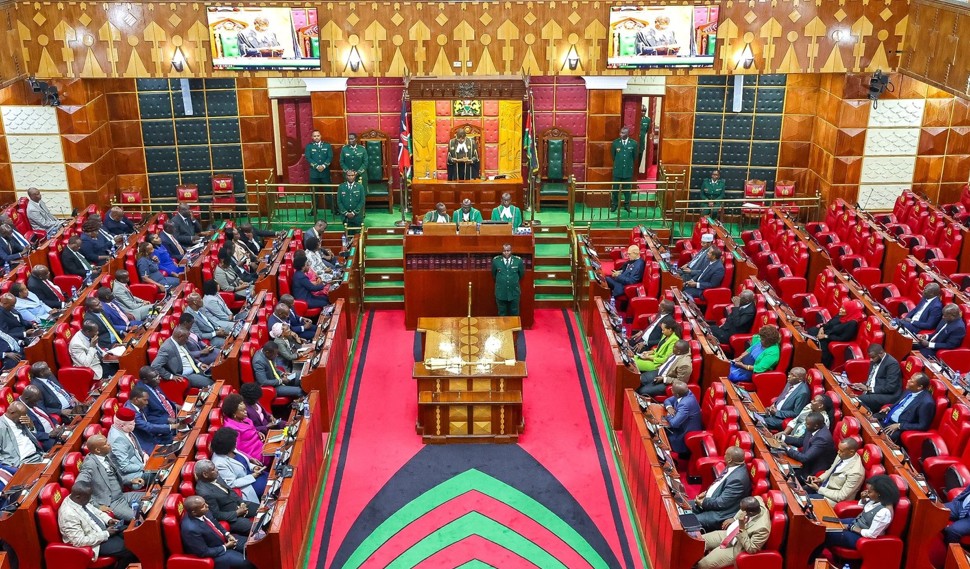Health professionals slam government over MPs’ increased mileage allowances

The Kenya Environmental Health and Public Health Practitioners Union said the government is prioritising lawmakers' benefits over urgent healthcare needs.
Health professionals have raised concerns over the government’s decision to increase the monthly mileage allowance for Members of Parliament (MPs), arguing that critical sectors like healthcare continue to be neglected.
The Kenya Environmental Health and Public Health Practitioners Union (KEHPHPU) has criticised the move, stating that the government is prioritising lawmakers' benefits over urgent healthcare needs.
More To Read
- Katiba Institute seeks full disclosure of MPs’ mileage allowance details in push for accountability
- Muslim clerics threaten demonstrations against MPs’ pay rise
- Doctor who saved lives denied treatment at KNH, dies after delayed medical attention
- Treasury withdrew Sh11 billion emergency funds to pay doctors, contractors
- MPs award themselves Sh1.62 billion for travel, entertainment
- Lavish travel spending persists as MPs, State House splash Sh7.8 billion in six months
KEHPHPU Secretary General Brown Ashira decried the disparity in resource allocation, highlighting the struggles faced by health professionals who continue to work under poor conditions with minimal compensation.
“We continue to suffer from preventable illnesses that keep re-emerging day in and day out. We have failed to eradicate diseases like Malaria, TB, and Cholera due to skewed budgeting, yet money is available to increase MPs’ salaries,” Ashira said.
His remarks come after the Salaries and Remuneration Commission (SRC) approved an additional Sh366,011 per month for each MP, effective April 1, 2025. The increase will cost taxpayers Sh152.3 million every month, amounting to Sh1.83 billion annually. Over 29 months, this expenditure is projected to reach Sh4.4 billion.
Ashira called on President William Ruto and other government officials to reconsider their financial priorities, urging them to channel more resources towards healthcare rather than boosting MPs’ perks.
“Without proper recruitment and funding, the goal of achieving Universal Health Coverage (UHC) will remain out of reach,” he warned, emphasising the need for immediate action to improve the welfare of healthcare workers and strengthen the country's health system.
Contradiction
The recent allocation contradicts the government’s austerity measures directed by President William Ruto’s government.
Just last month, Head of Public Service Felix Koskei emphasised the need for closer collaboration between the Salaries and Remuneration Commission (SRC) and the Public Service Commission (PSC) to manage the escalating wage bill, which is straining funds meant for development projects.
Koskei cautioned that rising wage expenditures are diverting resources from crucial development initiatives, stressing that while the SRC is responsible for regulating wage increments and the PSC manages staffing levels, both entities must work together to maintain a sustainable wage bill without compromising essential services.
“I urge you to reflect together. If you work jointly, the public sector wage bill will remain sustainable without compromising service delivery,” he said.
According to the SRC, Kenya’s wage bill-to-revenue ratio has been gradually declining—from 54.77 per cent in the 2020/2021 financial year to 47.06 per cent in 2021/2022. The commission estimates that this figure has further reduced to 46.64 per cent in 2022/2023 and 46.23 per cent in 2023/2024.
The SRC, under Article 230(4)(a) of the Constitution, is mandated to review and set remuneration and benefits for employees at both the national and county levels. It conducts periodic salary reviews for State Officers, including MPs.
The ongoing Third Remuneration and Benefits Review Cycle, covering the 2021/2022 to 2024/2025 financial years, forms the framework for the current salaries and benefits awarded to lawmakers.
Top Stories Today













































